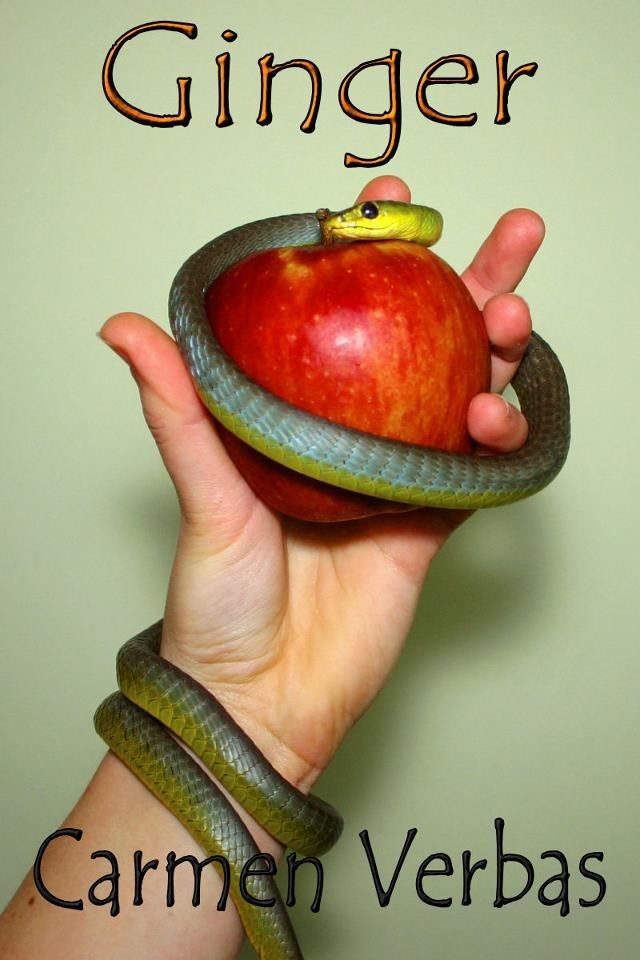Is Edward thirsting for blood? Or a hit of something far more dangerous?

When describing the impact that Stephanie Meyer's Twilight saga had on the masses, people often reach for the word, 'phenomenon,' a word typically reserved for something wildly impressive or unexplainable. The word choice is a sound one. Many people wonder why a book with average or below average prose and an already done concept—a girl fell in love with a vampire in 1992 in Annette Curtis Klause's book The Silver Kiss—grabbed the world with a Cupid-like chokehold. It was almost like the book was meth to the readers: one dose and they were hooked.

Perhaps the reason Twilight affected readers like a drug is because it taps into some part of the reader's subconscious. Perhaps Twilight isn't actually a typical high school love story with a fantastical Byronic hero but actually a story about, well, drugs.

For those who (somehow) don't know, Twilight tells the story of Isabella, or Bella, Swan who moves to Forks, Washington from Arizona and falls in love with the mysterious Edward Cullen. After a few obligatory chapters of cat and mouse, the two begin seeing one another, and Bella discovers that her improbably beautiful man is no man at all—he's a vampire. As the story goes on and their love proves true, Bella begs Edward to make her a vampire as well. He resists, insisting that the life of a vampire is not one he would wish on anyone, especially someone he loves. Two books later, however, he agrees to her request—but not before getting her pregnant. As Bella gives birth, it becomes obvious that the birthing process will kill Bella if something extraordinary is not done. In that moment, Edward administers vampire venom into Bella's heart, enabling her to make it through the surgery. But though Bella lives, their struggles—and the series—does not yet end. The vampire equivalent of a government, the Volturi, catch wind that Bella and Edward created a half-breed and seek to destroy it. In the end, however, the baby's life is saved by the appearance of another half-breed who hurts no one and lives a happy and fulfilling life.

To those who have never heard of 'angel dust,' 'KG,' 'Ashy Larry,' or 'PCP,' it is a Schedule II controlled substance classified as a hallucinogen, dissociative anesthetic, psychotomimetic, and sedative-hypnotic. Originally intended to be used as an anesthetic, PCP became banned once harmful side effects were noted. Side effects of PCP include illusions and hallucinations, changes in body awareness, feelings of invincibility, violence, memory loss, and suicide, to name a few (nhtsa.gov). Stories have been reported that people on PCP have jumped off of buildings because they believed they had super powers, peeled away their own skin because they thought they were an orange, and, as was the case of Big Lurch, a former rapper, murdered and cannibalized their roommate. People using PCP also frequently experience mood swings, intense anger, and sport bloodshot eyes.

Edward Cullen and the rest of his family believe they have superhuman abilities. They reportedly don't eat and have very pale skin. All of them experience intense withdrawal for "blood" and, should they indulge in human blood, have red eyes. Throughout the book, Edward can be described as moody—especially in the beginning—and he does experience moments of extreme anger (usually in regard to someone trying to hurt Bella or take her away from him). Is it not possible that the Cullens weren't vampires at all but PCP users? That their lack of appetite is due to withdrawal; that their pale skin is due to malnutrition; that the "blood" they seek is actually another dose of angel dust?

For further proof, examine the character of Isabella Swan. Throughout the book, Meyer indicates Bella suffers from low self-esteem. Constantly she bemoans how much worse looking she is than Edward, how she doesn't understand that someone as amazing as he could possibly fall for someone as lowly and unworthy at her. She even goes so far as to fold pictures of the two of them in half so that only Edward is showing; she feels the two of them side by side juxtaposes them and shows the world just how unworthy of him she is. Also, as mentioned above, the series opens with Bella having just undergone a major change. She's moved from sunny Arizona to rainy Forks, Washington, to an area she hates, where she has no friends. This stressor, paired with low self-esteem, could easily trigger someone to turn to drugs. Thus, when Bella begs Edward to "change" her, to make her into a vampire, she is actually begging him for drugs. Specifically, PCP.

If this is the case, Edward's adamant refusal to indulge Bella makes sense: no loving boyfriend would willingly make his girlfriend a drug addict. In the book, however, Edward must change Bella. He administers the venom as she experiences the immense pain of childbirth—of vampire childbirth, which we are led to understand is much, much worse, even lethal. The venom gets her through, knocks her out like an…anesthetic.

As previously mentioned, PCP was originally used as an anesthetic. One of its classifications is "dissociative anesthetic." This becomes relevant when considering the first book's title of Twilight. A type of anesthesia exists known as 'twilight anesthesia.' This type of anesthesia does not completely knock the patient out; they are awake but cannot feel pain. Sometimes, memory loss does occur, which could explain why Bella does not remember what happens after Edward administers the venom. Also, one should note that the Twilight vampires seem impervious to any sort of pain, as if sedated. Even a car careening into Edward fails to cause him pain.

If we follow this theory, once Bella has her baby, she becomes a vampire, a user of PCP. She craves the "blood" like all of the others. Her baby, Renesmee, also craves the blood, craved it before she was born since one of her parents was a vampire. This means that, while pregnant, Bella needed to consume "blood," or use PCP. Obviously, anyone would object to someone using drugs, especially drugs as strong as PCP, while pregnant. The use of PCP during pregnancy can cause the baby to suffer a myriad of negative side effects, one of the worst of course being addiction to PCP. That the Vulturi objects to the baby's life is no surprise. The kid never even has a chance. If the Vulturi simply kill Renesmee, the child never has to suffer through the horrible hand she's been dealt, and she, and everyone else, never has to worry about her following in the footsteps of the other vampires—or Big Lurch—and 'eating' people.

Another half vampire half human named Nahuel ends up saving Renesmee's life. He shows the Volturi that he harms no one, that he leads a perfectly happy, peaceful life. Is it not possible that Nuhuel represents people who have managed to control their PCP addiction? The call for 'blood' still sings in his veins, but he and his sisters, the only other known hybrids, can resist it. They can coexist with humans because they do not exhibit the same physical characteristics as vampires. Following this theory, that would be because they are not under the influence of blood, or PCP. They have no reason to have pale skin, red eyes, etc.

A few loose ends still need to be addressed before this theory can fully stand. If the Cullens are PCP users, and PCP is blood, and PCP causes red eyes, why do the Cullens not have red eyes? This could be because Meyer realized red eyes seem quite demonic—which works well when vampires are the bad guys, prowling the streets at night and cannibalizing people. But Meyres wanted the Cullens to be likable; she wanted Edward to be a protagonist, a love interest. Altering the eye color eliminates the demonic element as does tweaking the character's menu so that it still contains blood, just not human blood.

Finally, one major characteristic of a Twilight vampire has been overlooked: vampires are immortal. Once they 'change,' they never get older. Perhaps that is because once someone gets hooked on a drug like PCP, the user kills any future he or she ever would have had.
Check out my book!


